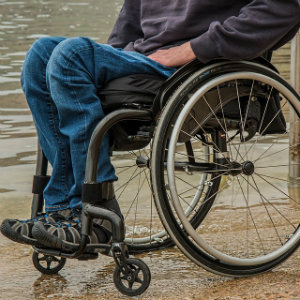Have you suffered preventable injuries as a result of someone else's careless behavior? You may have questions regarding:
- Who is legally responsible for my accident?
- Do I need a lawyer?
- What kind of compensation could I receive?
We understand the financial and emotional difficulties you're facing because of your injuries. We're prepared to stand by your side and earn the compensation you need to move on.
Personal injury lawyers help victims who have been injured due to another party's negligence. You could go through your whole life following the rules and living carefully but still be blindsided by serious injuries due to someone else's reckless behavior.
How Is Personal Injury Defined?
Personal injury is legally defined as an injury inflicted on the body, mind, or emotions. Unexpected accidents can cause a great deal of financial, physical, and emotional difficulties. In order to have a smooth recovery, victims in these cases require various forms of compensation. When this happens, personal injury lawyers work to compile evidence and win verdicts or settlements for their clients.
Negligence Definition
In order to file a personal injury lawsuit, your legal representation must prove that another party was negligent during your accident. As members of a structured society, we have responsibilities to avoid behaving in ways which endanger other people. A failure to meet these responsibilities is legally defined as negligence.
For example, we are expected to clear our walkways of snow and ice after a big storm. If we fail to do so and our neighbor slips and falls outside of our home, we would be considered negligent and may be required to financially compensate our neighbor for damages caused by the accident.
What Kind Of Damages Can I Receive?
If another party is deemed to be negligent in your accident, you may be eligible for the following forms of compensation:
- Medical expenses
- Past and future lost wages
- Property damage
- Physical pain and suffering
- Emotional distress
- Loss of quality of life
- Loss of consortium (in wrongful death cases)
- Incidental expenses (such as necessary caretakers or home alterations)
- Disfigurement
Pennsylvania is a comparative negligence state. This means that the actions of both the defendant and the plaintiff will be evaluated during a civil trial. A corresponding percentage will be assigned to determine how much the plaintiff's negligence contributed to the accident.
As long as this number is less than 50%, then the plaintiff will be eligible for compensation. The final payout will be adjusted based on this percentage. For example, let's say you were deemed 10% negligent in a trip and fall case because you were looking down at your phone. If you receive a $10,000 verdict, that amount would be reduced to $9,000 because of comparative negligence.










